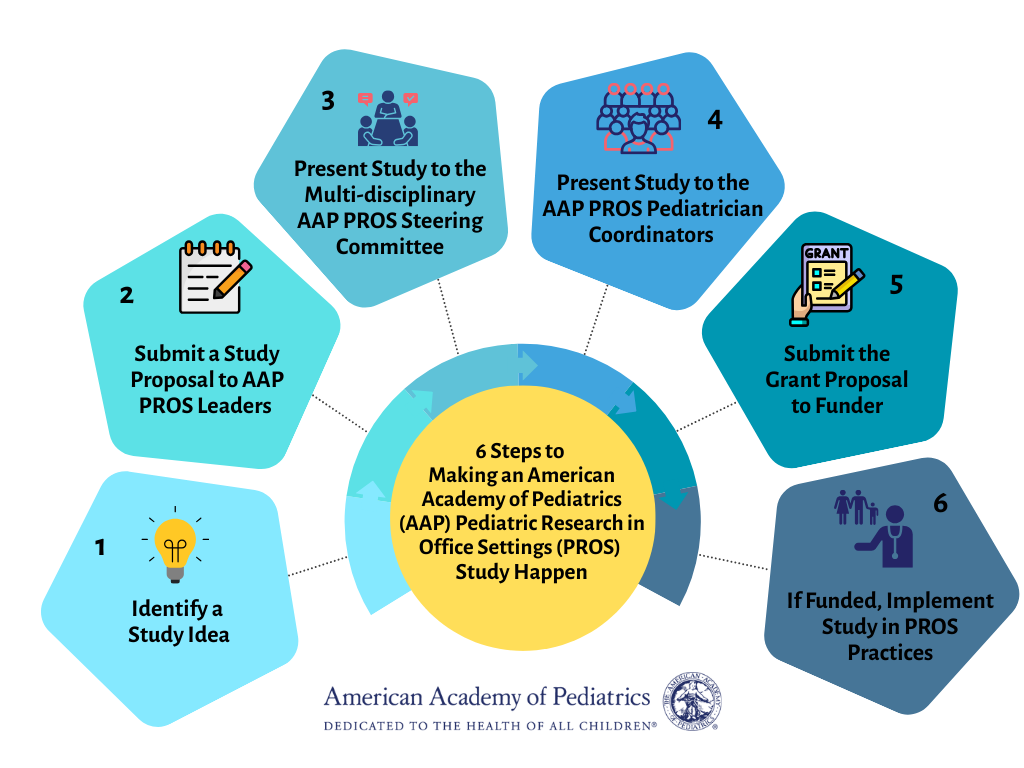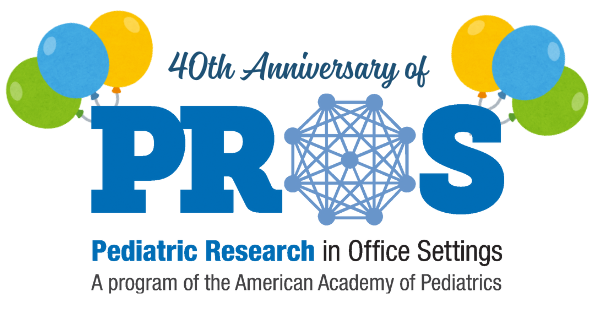Want to help move the field of pediatrics forward through pediatric primary care research?
- If so, please submit this form to join Pediatric Research in Office Settings (PROS), the American Academy of Pediatrics’ (AAP) practiced-based research network!
- To receive news about us and our various study opportunities, contact us here!
- AAP PROS is a United States-based network. Practices and clinicians that join AAP PROS must be located in the United States.
Who Can Join AAP PROS?
- Practices: Practices interested in joining PROS must provide a full range of direct pediatric and / or adolescent patient primary care (including preventive services). Each participating practice must include a current AAP member or FAAP (Fellow of the American Academy of Pediatrics).
- Individuals: Physicians (MDs and DOs), nurse practitioners, and physician assistants / associates interested in joining PROS must provide a full range of direct pediatric and / or adolescent patient primary care (including preventive services).
What Are the Benefits of Joining AAP PROS?
PROS membership provides several benefits! For instance, you’d get to:
- Work with colleagues from around the U.S.
- Contribute meaningfully to improving pediatrics and child health.
- Review preliminary reports of research results as soon as they are available.
- Receive CME and / or MOC credits for some PROS studies.
- Participate in manuscript development and / or review when appropriate.
- Have your practice acknowledged in published articles.
What Would It Look Like to Participate in an AAP PROS Study?
Participation varies by project type:
- Some PROS studies may involve completing brief data collection forms and implementing interventions, such as training-based anticipatory guidance and counseling for patients / families.
- Electronic Health Record (EHR) studies may involve completing the steps needed to share your EHR data so they can be combined with data from practices nationwide.
How Do I Propose a Study Idea to AAP PROS?

To make a study suggestion, please contact PROS Director Alexander G. Fiks, MD, MSCE, FAAP ([email protected]). Later, you will be asked to submit a written proposal for consideration by the AAP PROS Steering Committee.
- Proposals need to specify the following:
- Research question(s) being proposed.
- Specific study aims.
- Information being gained from the study and its importance.
- Data that would be collected.
- Approximate time frame for accomplishing the study’s goals.
What Steps Does AAP PROS Follow When Reviewing a Study Proposal?
Step 1: The multidisciplinary AAP PROS Steering Committee will review a study proposal by applying the following criteria during its deliberation:
- Importance of the study idea.
- Suitability for PROS.
- Feasibility in real-life settings (i.e., pediatric primary care practices in busy communities).
Step 2: If the AAP PROS Steering Committee approves a study idea, it will be brought before the AAP PROS Coordinators for further review. This secondary review will utilize the same criteria listed above, but AAP PROS Coordinators will also have the opportunity to:
- Recommend study protocol changes.
- Review and comment on proposed study materials.
- Advise the Principal Investigators (PIs) on ways to maximize the study's feasibility in real-life settings.
Through this process, network members gain ownership of the study and actively work to improve it!
How Long Does the Study Proposal and Review Process Take?
From suggesting an idea to launching a study, the study proposal and review process may take 2 – 4 years to execute, with funding being the main limiting factor.
Have Any Questions?
Again, please contact AAP PROS for answers to your questions and to help you get started!
Last Updated
12/11/2025
Source
American Academy of Pediatrics
